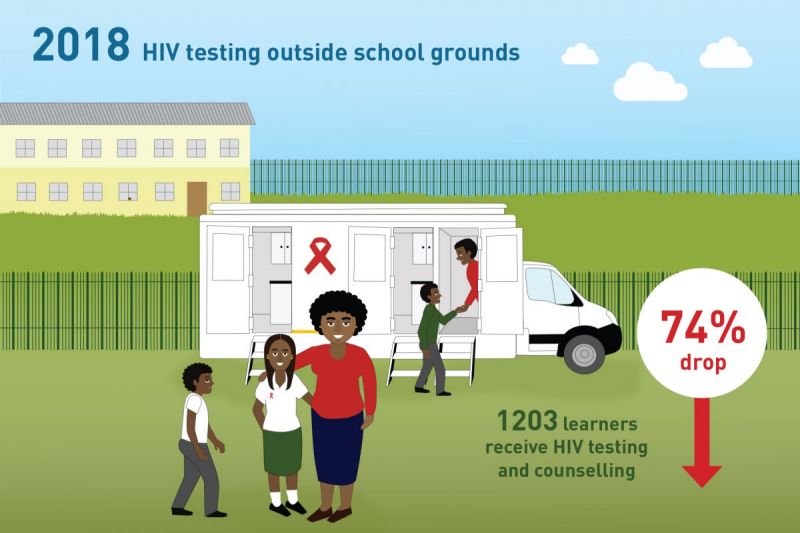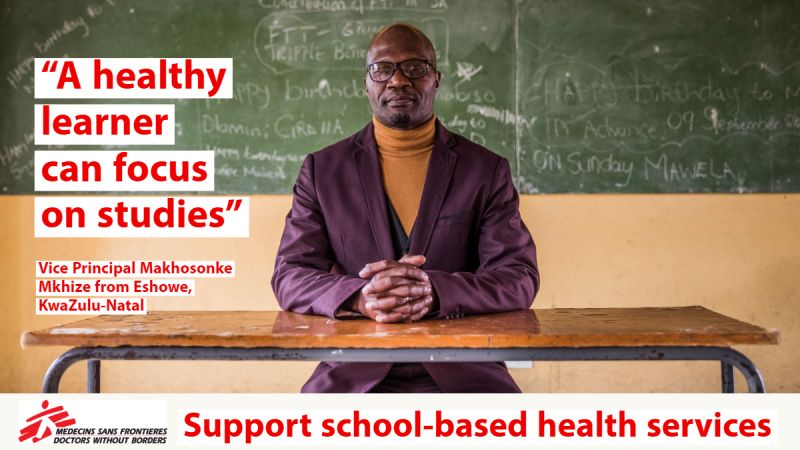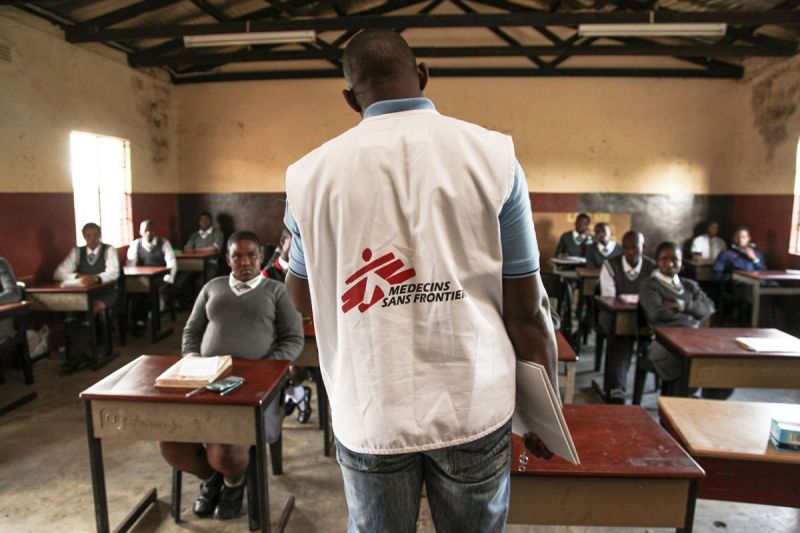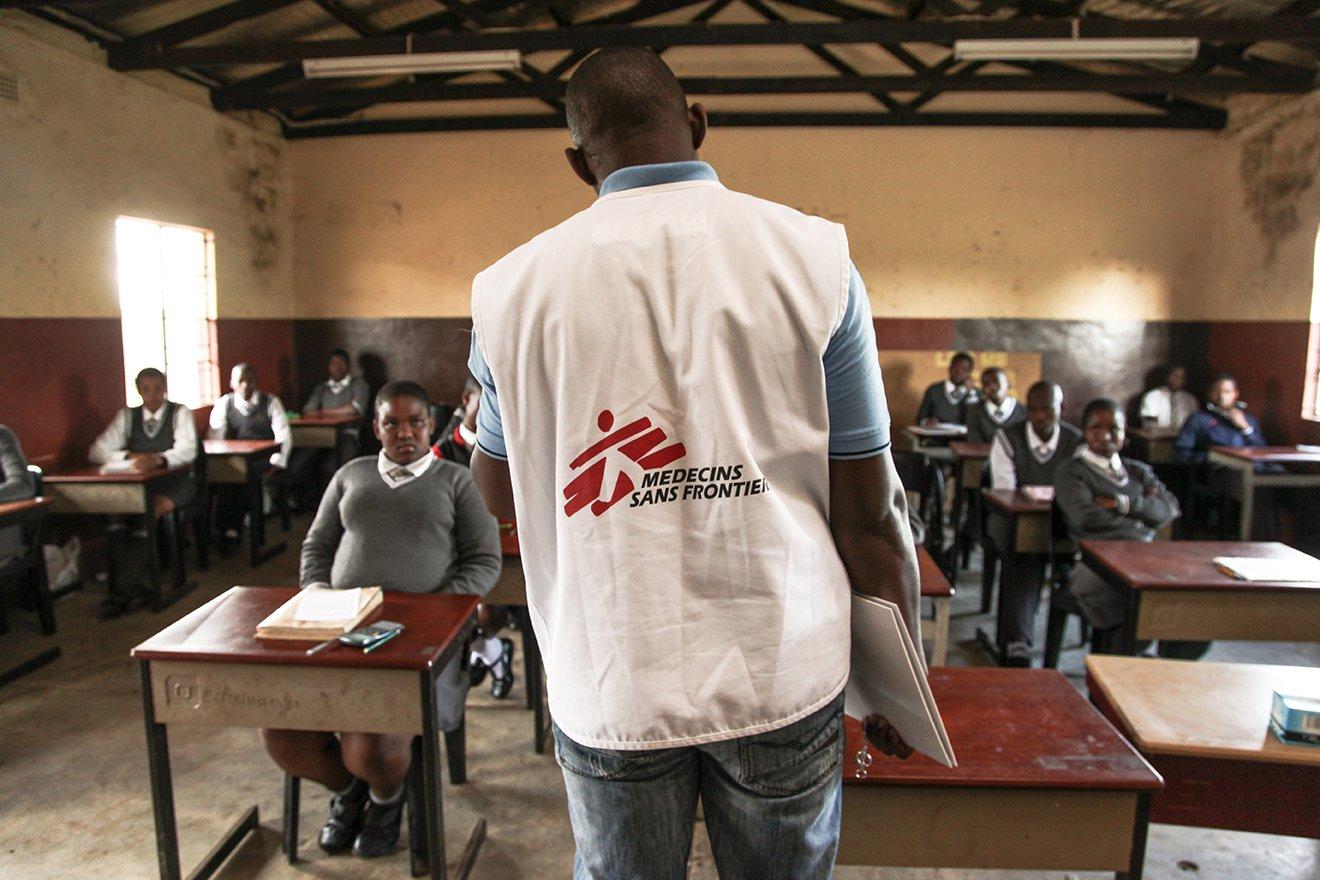The roll-out of critical sexual and reproductive health (SRH) services for secondary school learners in South Africa is being held back by a lack of guidance from the National Department of Basic Education (DBE) to provincial governments on how these services should be implemented.
Doctors Without Borders (MSF) can reveal that learner testing in its well-established school health programme in King Cetshwayo District fell 74% in 2018 after the programme team was barred by the district department of education from offering services on school grounds.
MSF is now making an urgent call on the DBE to release clear guidelines on the implementation of school-based SRH services, ensuring that these instructions reflect learner preferences and the experience of existing school health programmes.
“Starting in 2012 we have been offering HIV testing in up to 38 secondary schools in the King Cetshwayo District as a way of helping to reduce the very high rate of HIV infection among youth, especially young women who are still infected in South Africa at a rate 4 high times greater than young men,” says Musa Ndlovu, Deputy Field Co-ordinator for MSF in this district.
“It has been our experience that learners engage best with SRH services when these are offered inside schools and within school hours,” he adds. Ndlovu points out that in 2017 the MSF programme was able to test 5,894 learners by working inside schools, whereas the number of tests provided fell to just 1,203 in 2018 when the mobile clinic was located outside the school gates.

Find out what some of the learners want with regards to sexual reproductive health services in schools here.
“When services are located outside premises it means learners must use them as they leave school, but often they are rushing to catch some form of transport at this time, or in a group of friends, which raises confidentiality issues,” Ndlovu says.
The DBE adopted the National Policy on HIV, STIs and TB in 2017 saying that learners can and should start receiving school-based SRH services. However, provincial governments cannot begin to implement this policy until the DBE provide implementation guidelines describing how health services for learners should be offered. The guidelines have been drafted but are yet to be released 20 months after the DBE adopted its policy.

In King Cetshwayo District learners and educators have expressed frustration at the impact of this delay on the efficient functioning of the school health programme, and 100 anxious parents have now written letters to the Director General of the DBE calling for SRH services in schools to commence.
One of the letter writers is Thandiwe Shembe, a parent and teacher who feels “it's a good thing that services like HIV testing go to school because we as parents might find it awkward to take our children to the hospitals. And teenagers have their own problems as they are growing up and maybe they can't approach us as parents because they are afraid of the reaction,” she adds.
Shembe believes SRH services should be offered inside schools, as that way “learner health needs can be understood by teachers and supported, which is not something that will happen if these services are offered outside schools.”

MSF currently runs two school health programs in different areas of South Africa, both in partnership with local authorities and health facilities. These programmes demonstrate that working in partnership with Departments of Education and health, local leaders, school principals, parents and members of School Governing Bodies, it is possible to provide comprehensive SRH services to learners.
Find out more about MSF's work in South Africa
